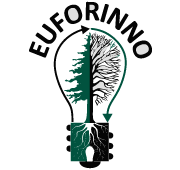CP 4 Helmholtz Zentrum München, Institute of Biochemical Plant Pathology (HMGU) Germany
Introduction
Helmholtz Zentrum München is the German Research Centre for Environmental Health. It investigates important common diseases which develop from the interaction of lifestyle, environmental factors and personal genetic background, focusing particularly on diabetes mellitus and chronic lung diseases.
Helmholtz Zentrum München is a research institution of the Federal Republic of Germany and the Free State of Bavaria. It is a member of the Helmholtz Association of German Research Centres.
It is divided into 40 research institutes and independent departments, which are interlinked and cooperate on various topics and in various research programmes. The centre has diverse technology platforms which function as central service units. The Institute of Biochemical Plant Pathology is divided into 5 groups: Plant Abiotic Stress (D. Ernst), Nitric Oxide Production and Signalling (J. Durner), Redox Signalling and Proteomics (C. Lindermayr), Molecular Plant Physiology (A. Schäffner) , Junior Research Group Inducible Resistance Signalling (C. Vlot-Schuster) and a Research Unit Environmental Simulation (J.-P. Schnitzler)
The main goal of the Plant Abiotic Stress group is to understand, at the molecular level, the plant’s reaction to suboptimal environmental conditions such as high light and UV-B radiation, water shortage/drought periods, and interaction with air pollutants and heavy metals.
Contribution to the RID (research and innovation development) objectives
HMGU, the Plant Abiotic Stress group, will support SFI on genomic, transcriptomic and high throughput sequencing. The key scientific problem to be solved is the influence of different forest management practices and different tree ectomycorrhizal partners on the diversity of rhizosphere fungi (mycorrhizal and saprotrophic) and bacteria.
Short profile of staff members
Dr. Dieter Ernst is molecular biology, biochemistry, and “omics” technologies expert in molecular biology, biochemistry, and gene expression studies. He focuses on abiotic stress, e.g. ozone, heavy metals, high-light and UV-B radiation.
Dr. Ulrike Kanter is an expert in molecular biology and plant physiology including RNA-, DNA-isolation, quantitative real time PCR, high throughput sequencing techniques, expression studies and QTL-analysis. Physiological studies include sugar analysis of plant cell walls and uptake studies with radioactive tracers, among others.
Introduction
Helmholtz Zentrum München is the German Research Centre for Environmental Health. It investigates important common diseases which develop from the interaction of lifestyle, environmental factors and personal genetic background, focusing particularly on diabetes mellitus and chronic lung diseases.
Helmholtz Zentrum München is a research institution of the Federal Republic of Germany and the Free State of Bavaria. It is a member of the Helmholtz Association of German Research Centres.
It is divided into 40 research institutes and independent departments, which are interlinked and cooperate on various topics and in various research programmes. The centre has diverse technology platforms which function as central service units. The Institute of Biochemical Plant Pathology is divided into 5 groups: Plant Abiotic Stress (D. Ernst), Nitric Oxide Production and Signalling (J. Durner), Redox Signalling and Proteomics (C. Lindermayr), Molecular Plant Physiology (A. Schäffner) , Junior Research Group Inducible Resistance Signalling (C. Vlot-Schuster) and a Research Unit Environmental Simulation (J.-P. Schnitzler)
The main goal of the Plant Abiotic Stress group is to understand, at the molecular level, the plant’s reaction to suboptimal environmental conditions such as high light and UV-B radiation, water shortage/drought periods, and interaction with air pollutants and heavy metals.
Contribution to the RID (research and innovation development) objectives
HMGU, the Plant Abiotic Stress group, will support SFI on genomic, transcriptomic and high throughput sequencing. The key scientific problem to be solved is the influence of different forest management practices and different tree ectomycorrhizal partners on the diversity of rhizosphere fungi (mycorrhizal and saprotrophic) and bacteria.
Short profile of staff members
Dr. Dieter Ernst is molecular biology, biochemistry, and “omics” technologies expert in molecular biology, biochemistry, and gene expression studies. He focuses on abiotic stress, e.g. ozone, heavy metals, high-light and UV-B radiation.
Dr. Ulrike Kanter is an expert in molecular biology and plant physiology including RNA-, DNA-isolation, quantitative real time PCR, high throughput sequencing techniques, expression studies and QTL-analysis. Physiological studies include sugar analysis of plant cell walls and uptake studies with radioactive tracers, among others.
News
09.03.2016
4th EUFORINNO Advisory Board Meeting
will be held from 10th to 11th March 2016 at the Slovenian Forestry Institute ...
posvet METODOLOGIJE OCEN VPLIVOV TVEGANJA
14. januarja 2016 od 9. do 13. ure v dvorani Slovenske akademije znanosti ...






